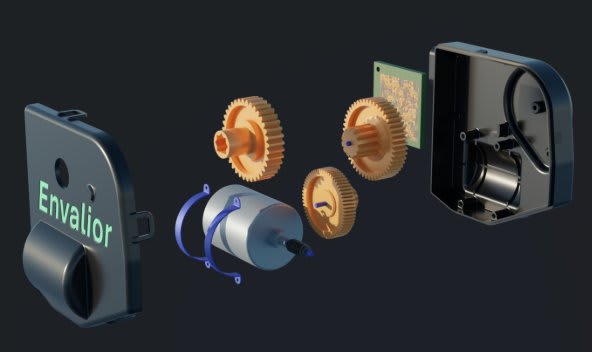
Envalior is addressing the shift toward PFAS-free solutions in tribological applications with a focus on PTFE-free materials that maintain durability, efficiency and cost-effectiveness. The company highlights its Stanyl polyamide 46 portfolio as a route to sustain performance where PTFE has traditionally been used to reduce wear and friction. Envalior notes that if tighter regulatory restrictions limit PTFE use, components that previously relied on PTFE for performance may require reformulation to meet application demands.
According to the company, Stanyl grades frequently meet performance requirements without PTFE in timing systems, actuator gears, bearings, seals and bushings. "Our Stanyl portfolio offers customers many options to fulfill high performance characteristics while meeting legal and application-specific requirements. Stanyl is able to offer to manufacturers ductility, robust tribological performance and design freedom via extruded parts," said Adnan Hasanovic, technical expert for tribological applications at Envalior.
As industries push for higher efficiency and sustainability, Envalior positions Stanyl polyamide 46 for demanding wear and friction environments. "Our high-temperature polyamides often pave the way for innovations in a wide range of industries. For example, they are increasingly replacing metals and less durable plastics in gears, bearings, seals, and bushings for the automotive industry, robotics and household appliances," Hasanovic added. The portfolio targets applications operating at high torque, speed and temperature.
Key properties of Stanyl PA46 for tribological parts
Envalior states that Stanyl PA46 is designed for high mechanical performance at elevated temperatures due to its high crystallinity, combining the following characteristics:
- Superior fatigue and wear resistance
- High impact and weld line strength
- Excellent flow behavior for thin-walled designs
- Outstanding stiffness and creep resistance at elevated temperatures
In the company’s positioning, these attributes support demanding wear and friction parts and enable design options that may not be feasible with traditional materials. Compared with PA66, POM, PPS and PPA, Envalior reports higher performance, and it highlights significantly lower cost versus plastics such as PEEK.
Gears and actuator applications
Electrification and automation are driving new requirements for gearboxes and bearings. In electric vehicles, components such as electric power steering, brake boosters and thermal management valves call for compact, lightweight actuators that deliver high torque and long-term reliability at elevated temperatures. In robotics, the need to reduce inertia and weight in collaborative robot gear systems supports the move from metal to high-performance polymers. Appliance makers are also adopting polymer gears to improve production efficiency and acoustic behavior.
According to Envalior, Stanyl enables:
- Weight reduction: up to 40% less material usage compared with PPS and PPA, supporting lighter, more compact gears
- Noise reduction: up to 10 decibels lower gear noise than metal alternatives, improving NVH behavior
- High-temperature performance: reliable operation at temperatures up to 180°C for high-load parts such as turbo actuator gears
The company adds that advanced gear testing capabilities simulate real-world conditions to help identify suitable grades and minimize re-testing and re-molding.

Actuators are a key application area for Stanyl polyamide 46 compounds from Envalior
Bearings and high-speed performance
Compact EV motor layouts and high rotational speeds increase thermal and mechanical loads on bearing components. Envalior reports that Stanyl compounds enable thin-walled, lightweight designs with mechanical integrity under high centrifugal loads and speeds up to 30,000 rpm. Versus PA66, the company cites around 20% lower part deformation and resistance to chemical aging in contact with automotive lubricants.
For bearing cages, Stanyl is positioned as a replacement for metals and other polymers, with the following benefits:
- Low creep deformation, helping limit cage deformation under high speeds and centrifugal forces
- High ductility, reducing fracture risk and scrap rates during assembly
- High weld line strength, supporting complex cage geometries
- Fast production cycle times, enabled by high flow and crystallization speed
- Chemical resistance to oils and greases used in automotive environments
Simulation and material selection support
Envalior supports bearing and gear design with simulation tools including moldflow and finite element analysis to optimize performance under operating conditions. Detailed information on materials and grades is available via the company’s MaterialAdvisor, which provides digital tools for finding, selecting and evaluating materials.



